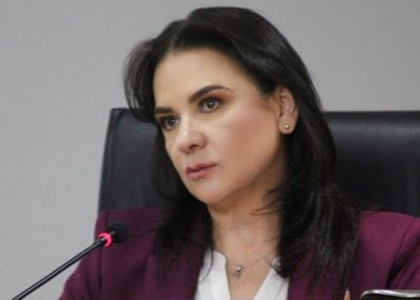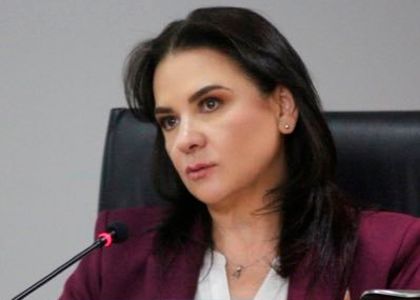Por Julieta del Río Venegas, comisionada del INAI; fue la primera mujer en presidir el Instituto Zacatecano de Transparencia y Acceso a la Información, titular del Órgano Interno de Control de la SFP, y contralora del estado de Zacatecas.

Ya estamos en 2023 y la Cámara de Diputados aún no “destraba” el proceso del Comité Técnico de Evaluación para renovar a cuatro consejeros del INE que deben ocupar su cargo en abril, es decir, en menos de dos meses. El tiempo apremia, la polarización aumenta y la democracia espera; esta fotografía resulta preocupante si consideramos la claridad y organización necesarias para el correcto desarrollo de las elecciones.
De acuerdo con el artículo 41 constitucional, las designaciones de los consejeros electorales son facultad exclusiva de la Cámara de Diputados (por mayoría calificada, es decir, 334 votos), pero estos nombramientos son previamente propuestos por un Comité Técnico de Evaluación cuya función es evaluar los perfiles de las y los candidatos, que debe integrarse por siete ciudadanos expertos en la materia: el INAI propone dos miembros, la Comisión Nacional de Derechos Humanos (CNDH) otros dos, y la Junta de Coordinación Política de la Cámara de Diputados (JUCOPO) a los últimos tres, quienes, a partir de un análisis serio y profesional. Después de conformarse el comité, este propone quintetas para las y los candidatos a consejeros electorales (en este caso, cuatro quintetas por los cuatro puestos a ocupar).
Desde diciembre de 2022, el INAI seleccionó, por unanimidad, a dos integrantes del Comité Técnico de Evaluación (a María Esther Azuela Gómez y a Sergio López Ayllón); aunque la Jucopo señaló que impugnaría la designación de uno de los dos integrantes propuestos por nuestro Instituto. A la fecha no hemos recibido notificación alguna al respecto.
Los días pasan y la Cámara de Diputados no resuelve. Recordemos que el pasado 23 de diciembre, la Sala Superior del Tribunal Electoral del Poder Judicial de la Federación (TEPJF) ordenó modificar la convocatoria original para garantizar que este Comité actúe de manera autónoma de la Jucopo; respete las reglas en materia de paridad de género, y distinga con claridad los perfiles propuestos para presidente o presidenta del Consejo General del INE de las otras tres consejerías electorales a ocupar.
Aparentemente, en la orden del día de este jueves en la Cámara de Diputados, se atenderá la recomendación del Tribunal, pero debemos estar atentos a cómo se hará.
Al respecto, recientemente, el secretario de Gobernación Adán Augusto López llamó a que los diputados de su partido no negociaran con la oposición y aseguró que el mejor método para elegir a los nuevos consejeros electorales es por insaculación, es decir, por sorteo. Si este fuera el desenlace del proceso, que implicaría la renuncia a los consensos y a los acuerdos entre los legisladores, sin duda un elemento fundacional en una democracia, el Comité Técnico de Evaluación resulta aún más relevante.
Que participen dos órganos autónomos como el INAI y la CNDH en este proceso de renovación del INE está pensado para garantizar que las designaciones a consejeros no se subordinen a una lógica y sí a la pluralidad de ideas. La separación de poderes, así como la independencia y autonomía de los organismos autónomos, no es una concesión o una regalía formal, por el contrario, es el pilar que sostiene el Estado de Derecho, así como nuestra democracia, misma que es solo es posible gracias a la existencia de un sistema de pesos y contrapesos; en resumen, de equilibrios.
Para evitar la simulación y la opacidad, es preciso conformar, de manera urgente, el Comité Técnico de Evaluación que ha sido respaldado desde el primer momento por el INAI.
Estemos alerta ante el proceso legislativo; convirtámonos en los contralores sociales y protejamos a nuestra democracia mexicana.
Las opiniones expresadas son responsabilidad de sus autoras y son absolutamente independientes a la postura y línea editorial de Opinión 51.
Más de 150 opiniones a través de 100 columnistas te esperan por menos de un libro al mes. Suscríbete a Opinión 51.






Comments ()